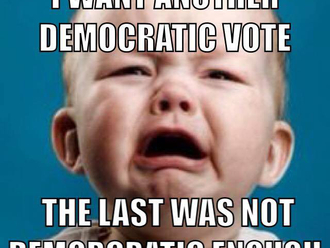Sri Lanka has imposed a state of emergency across the island for the first time since the end of its bloody and protracted civil war. In addition, two towns in Kandy district are under curfew, and the extraordinary measures follow several days of street violence and unrest targeting members of the minority Muslim community. Indeed, the government has imposed the security measures to try and prevent the anti-Muslim violence spreading to other communities and towns.
This sad chapter erupted when militant Buddhist mobs swept through Kandy’s towns and villages, beating up Muslims, turning over their businesses and engaging in violent and reprehensible acts of intimidation and violence. It is a behaviour that, given Sri Lanka’s ethnic make-up and its long and painful 28-year long civil war in the recent past, cannot be tolerated or allowed to fester and spread. Ethnic harmony must be given every opportunity to firmly take root in light of the constituent communities of Sinhalese, Tamils, Buddhists, Christians and Muslims that share the island nation.
The outbreak of violence is a disturbing development, and the imposition of the state of emergency and curfews shows that President Maithripal Sirisena is determined that the violence will be curtailed rapidly without little chance of it affecting his nation’s burgeoning tourism sector. Prime Minister Ranil Wickremesinghe is also on the same page, noting the anti-Muslim violence appeared to be organised and systemic — and promising a stern government response as a consequence.
The response of the government officials in Sri Lanka stands in stark contrast to the actions of the government of Myanmar when faced over the past five years with similar anti-Muslim violence and the targeting of Muslim-minority shops, businesses and homes. That sustained campaign by Buddhist extremists saw the Myanmarese government turn a blind eye, allowing for the eventual mass killings, ethnic cleansing and forced migration of the Rohingya people. That dark chapter has been termed by the United Nations as a textbook case of ethnic cleansing. Given the situation now in Sri Lanka, the UN is carefully monitoring events, is concerned over the violence but has welcomed the efforts of the Colombo government to exert its control, address the tensions and achieve reconciliation. For now, the government has taken all of the right measures to ensure the violence is curtailed and the island remains a safe and secure destination for all travellers. For all living there, however, it is a reminder that the ethnic fabric is fragile — and that there are dark forces which view Muslims with hate.







